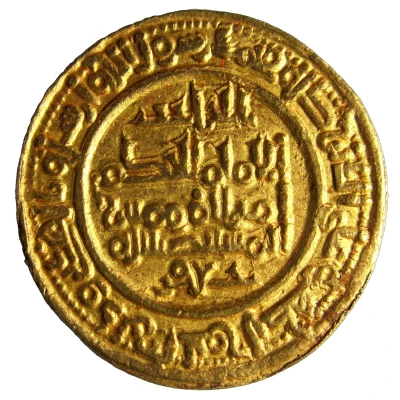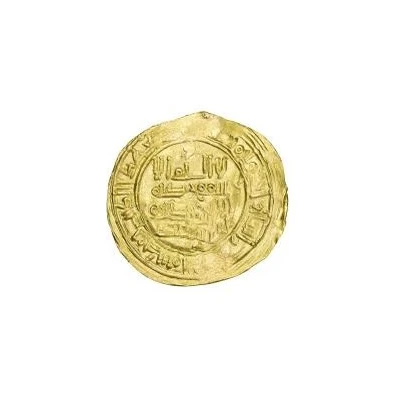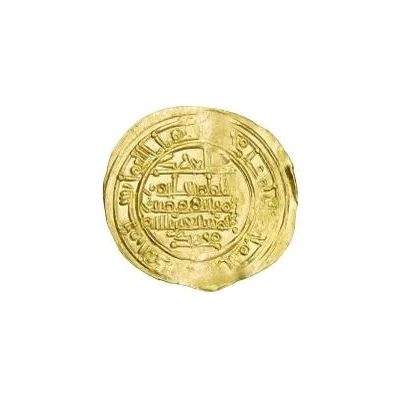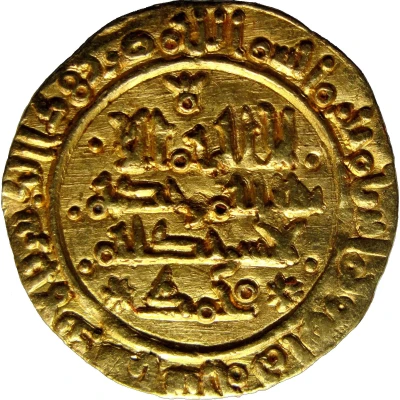
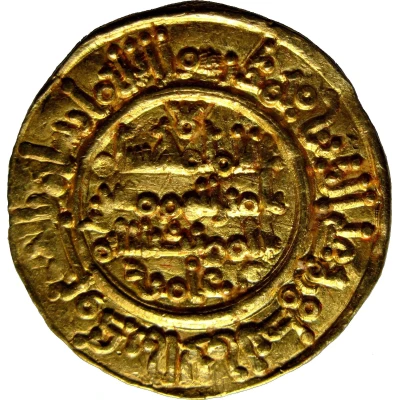

© Tonegawa Collection
Dinar - Hisham II First reign, al-Andalus
| Gold | 4.14 g | - |
| Issuer | Umayyad Caliphate of Córdoba (Córdoba, Al-Andalus and Ceuta) |
|---|---|
| Caliph | Hisham II (هشام المؤيد بألله) (976-1009, 1010-1013) |
| Type | Standard circulation coin |
| Years | 367-399 (978-1009) |
| Calendar | Islamic (Hijri) |
| Value | 1 Dinar |
| Currency | Dinar (929-1031) |
| Composition | Gold |
| Weight | 4.14 g |
| Shape | Round (irregular) |
| Technique | Hammered |
| Demonetized | Yes |
| Updated | 2024-10-05 |
| Numista | N#81269 |
|---|---|
| Rarity index | 100% |
Reverse
Arabic lettering
Script: Arabic
Lettering:
الامـام هـشـام
أمـيـر المومنين
المـويـد بــالله
عامر
بسم الله ضرب هذا الدرهم بالاندلس سنة ثلثين و ثلث مئة محمد رسول الله ارسله بالهدى و دين الحق ليظهره على الدين كله ولو كره المشركون
Translation:
The Imam Hisham
The Commander of the Faithful
Is the supporter of God
Amer
Muhammad is the messenger of God. He sent him with guidance and the true religion to reveal it to all religions even if the polytheists abhor it.
merciful
Comment
The legends vary a bit even in specimen of the same year. To check exactly the variety use the Vives y Escudero catalogue.The name of the monarch is written on the reverse, usually on the left of the second line.
Below is an example of the monarch's name "Hisham" on a coin:
The mint and date is written in full, on the marginal legend of the obverse. The script is somewhat calligraphic so not exactly like is presented on the dates in the bottom of this page. Below an example of the mint "al-Andalus" as seen on a coin is presented:
Obverse variants:
Interesting fact
One interesting fact about the Standard circulation coin Dinar - Hisham II (First reign, al-Andalus) 367-399 (978-1009) from Umayyad Caliphate of Córdoba (Córdoba, Al-Andalus and Ceuta) made of Gold weighing 4.14 g is that it features an intricate design that reflects the cultural and artistic achievements of the Umayyad Caliphate during its golden age. The coin's design includes Arabic inscriptions and geometric patterns that showcase the sophisticated craftsmanship of the time. Additionally, the use of gold as the material for the coin highlights the wealth and prosperity of the Caliphate during this period.

